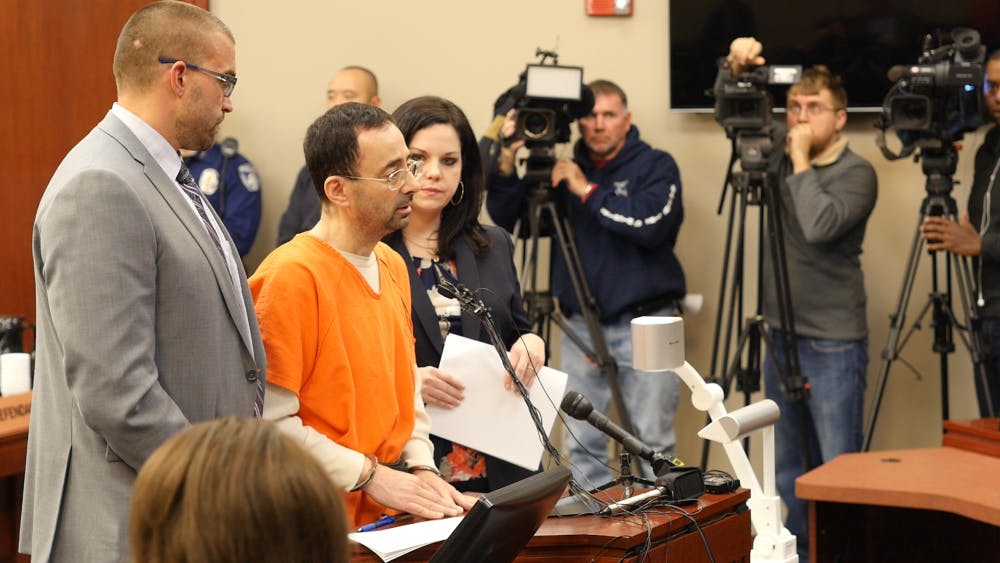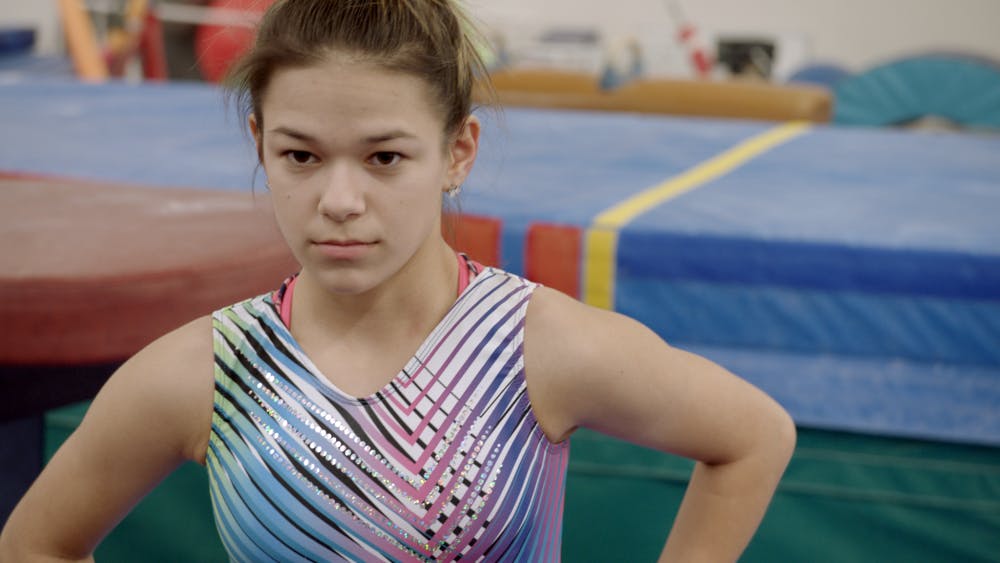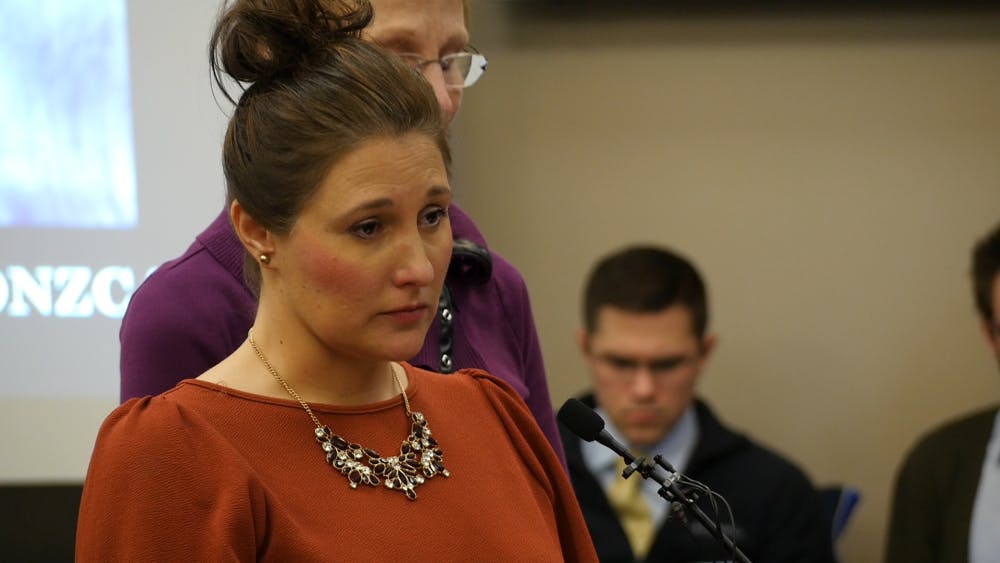At the Heart of Gold: Inside the USA Gymnastics Scandal is a heartbreaking, moving, and empowering documentary that exposes the systematic and institutionalized abuse of hundreds of young girls.
This powerful HBO documentary—which is already available for streaming on HBO Go—will be screened at Penn’s Annenberg Public Policy Center on Oct. 17 at 5:15 p.m. Immediately following the screening, there will be a Q&A session with executive producers David Ulich and Dr. Steven Ungerleider, gymnast and survivor Trinea Gonczar, and the CEO of CHILD USA Marci Hamilton.
Ulich, co–producer of the film, is also an attorney and the president of the Foundation for Global Sports Development. This foundation encourages at–risk youth to embrace teamwork, fair play, and drug–free sports. Moreover, Ulich was a member of the U.S. Olympic Committee board and has worked with the International Olympic Committee and other sports federations.

Larry Nassar in court. Photo courtesy of Brooke Lusk (Global Sports).
Ulich has been long interested in athletic justice and storytelling. He worked with the International Olympic Committee to help create a memorial surrounding the killing of Israeli athletes that occurred in Munich in 1972. After the project, in 2016 Ulich and Ungerleider produced a 30–minute documentary, Munich ’72 and Beyond. After this film received an Emmy nomination and other awards, Ulich and Ungerleider started to set up film subsidiaries and began creating educational documentaries.
However, Ulich is not just the filmmaker here—he has been immersed in the sports community for years. “Because of our ties with the U.S. Olympic Committee, we actually went to the president of the U.S. Olympic Committee, and we said, you know, this thing’s out of control. You need to get ahead of it and do something about it and protect these athletes," Ulich explained. "And the president of the Olympic Committee, Scott Blackmun, who is actually mentioned in the film, basically put his head down and said no, you know, my lawyers are telling me to be quiet and not say anything."
It became too much for Ulich—"Finally, we decided that we had to do something on our own, so we broke our ties with the U.S. Olympic Committee and decided to make the film to expose the whole story.”

Chelsea Zerfas at gym. Photo courtesy of Brooke Lusk (Global Sports).
The production of At the Heart of Gold had already begun before the Larry Nassar scandal broke. “We just grabbed our camera crew and raced over to the Michigan courthouse and started filming it,” Ulich comments. The news of the Nassar scandal did change the direction of the film a little bit, as parts of the documentary are now dedicated to the survivors telling their own stories.
These survivors’ stories are incredibly important. Ulich emphasizes, “This is the story of young, female gymnasts who nobody listened to. There are countless stories now, looking back, where there were red flags, you know. They would complain to their coaches. They would complain to the schools. They would tell their parents. And the schools or parents and the administrators at the schools basically didn’t do anything, which is the sad part. I mean this could have been stopped 20 years ago.” The testimonies of the survivors highlight how sexual abuse became systematic and institutionalized when it could have been stopped.
At the Heart of Gold aims to teach people about these pertinent issues. This film exposes an environment where kids were often on their own, where parents weren’t allowed. Even when there is parental oversight, Ulich explained, “The parents frankly themselves sometimes are blinded by the potential of athletic success for their kids.”
Ulich explained that the hardest part of making this film was cutting it down to just 90 minutes. After creating many versions of the film—including a three–hour one—the team had to make decisions about what to cut out.
One especially powerful scene shows one of the fathers of the survivors trying to physically attack Nassar in court. A debate arose about this scene when cutting down the film about whether or not to include it in the final cut—the argument being that that film should highlight the women coming forward as opposed to the men. “We ended up putting it in there," Ulich said, "and I think it’s one of the most powerful scenes. The bottom line is, you know, women alone aren’t going to solve this problem. It has to be a joint effort by men and women.”
Ulich’s most recent endeavor involves funding a program called Courage First. This online program teaches kids and parents about these issues that have the potential to arise in sports. The Penn screening is just one of the many efforts being taken to promote awareness and education across the nation.

